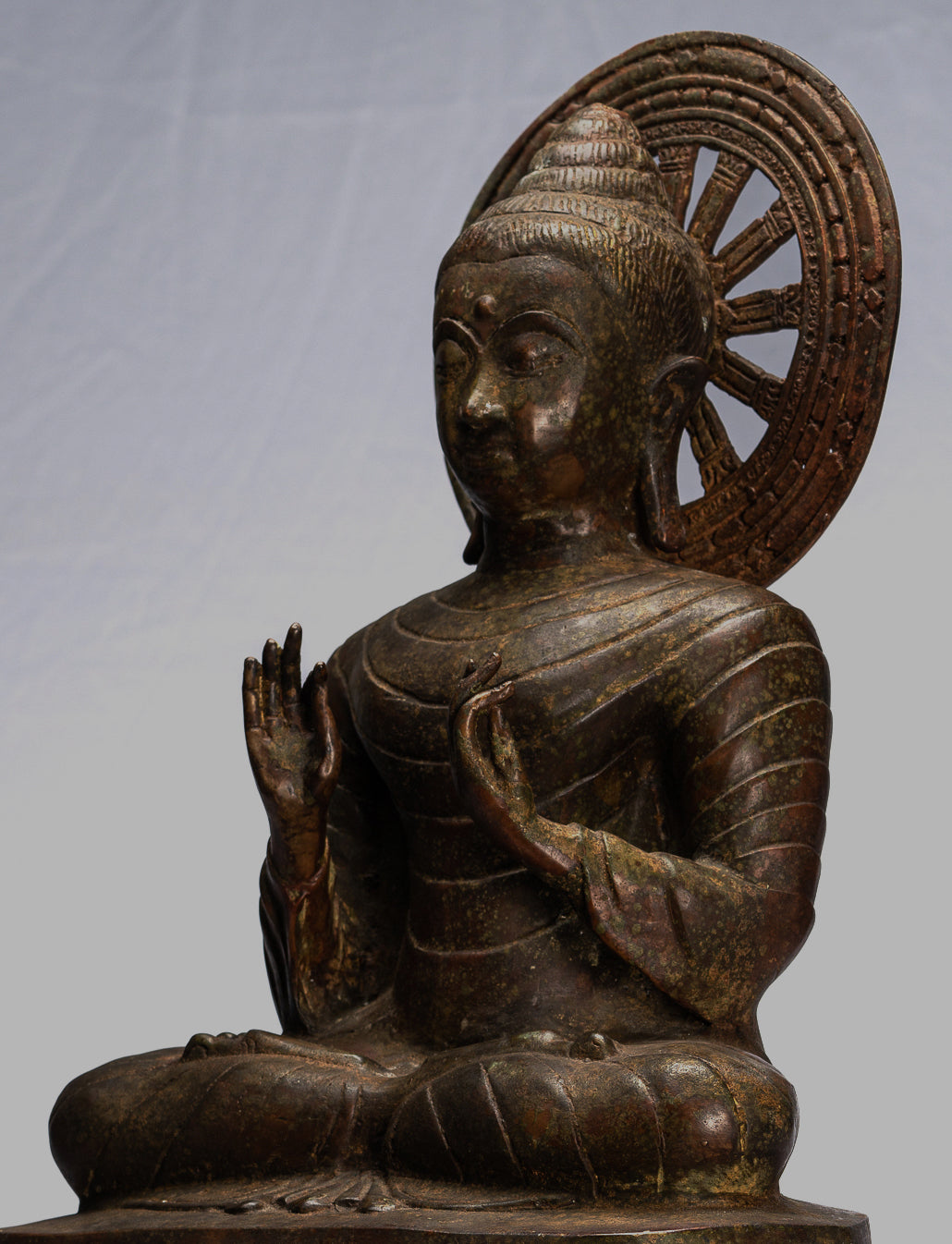
Dharma in Buddhism: A Transformative Force on the Path to Liberation
Introduction
In the vast tapestry of Buddhist philosophy, Dharma stands as the luminous thread weaving through the very fabric of existence. Its significance transcends the boundaries of mere doctrine; it is the guiding light, the cosmic order, and the profound teachings of the Buddha.
In this blog post, we delve into the ineffable importance of Dharma in Buddhism, unraveling why it is not just a concept but a transformative force on the path to liberation.
1. Cosmic Order and Harmony: At its essence, Dharma in Buddhism embodies the cosmic order that governs the universe. It is the innate rhythm, the interconnected dance of all phenomena. Recognizing and aligning oneself with this cosmic order is foundational to leading a life of harmony and balance. Dharma is the universal law that underlies the ebb and flow of existence, fostering a sense of interconnectedness and interdependence.
2. The Buddha's Enlightened Teachings: Dharma encapsulates the teachings of the Buddha, often referred to as the Dhamma. Siddhartha Gautama, after attaining enlightenment, shared his insights into the nature of suffering, the causes of suffering, and the path to liberation. The Dharma serves as a roadmap for individuals seeking to understand the intricacies of existence and navigate the complexities of the human condition.
3. Liberation from Suffering: The central tenet of Dharma is rooted in the Four Noble Truths, which acknowledge the existence of suffering (Dukkha), identify its origins, proclaim its cessation, and delineate the Eightfold Path as the way to end suffering. Dharma, through its teachings, offers a transformative path leading to liberation from the cycle of birth, death, and rebirth—Nirvana.
4. Ethical Guidelines and Virtuous Living: Dharma provides a comprehensive set of ethical guidelines known as Sila. These guidelines, encapsulated in the Five Precepts, form the basis for virtuous living. By refraining from harming living beings, avoiding theft, practicing sexual responsibility, speaking truthfully, and abstaining from intoxicants, individuals align their actions with the ethical underpinnings of Dharma.
5. Understanding Impermanence and Non-Self: Two pivotal aspects of Dharma—Anicca (impermanence) and Anatta (non-self)—challenge fundamental notions about the nature of reality. Dharma teaches that all things are impermanent, subject to change, and that the concept of a permanent, unchanging self is an illusion. Embracing these truths enables practitioners to navigate the transient nature of existence and release attachments.
6. Cultivation of Mindfulness and Meditation: Dharma emphasizes the cultivation of mindfulness (Sati) and meditation. Mindfulness involves being fully present in each moment, observing thoughts and sensations without attachment. Meditation, as a transformative practice, is a means to develop concentration, insight, and awareness—a direct path toward understanding the nature of the mind and achieving liberation.
7. Karma and the Law of Cause and Effect: Dharma unfolds the profound concept of Karma, the law of cause and effect. Every intentional action has consequences that shape one's present and future experiences. Understanding and working with Karma is fundamental to navigating the ethical dimensions of existence and steering one's journey toward enlightenment.
8. Compassion and Loving-Kindness: Dharma instills the virtues of compassion (Karuna) and loving-kindness (Metta). Compassion involves empathetic understanding of others' suffering, while loving-kindness extends unconditional love and goodwill to all beings. These qualities form the bedrock of ethical conduct and the interconnectedness advocated by Dharma.
Conclusion: Dharma is the beating heart of Buddhism—a guiding philosophy that transcends the realms of doctrine and ritual.
Its importance lies in its transformative power, offering individuals a profound understanding of existence, ethical guidelines for virtuous living, and a transformative path leading to liberation from suffering.
Embracing Dharma is not just an intellectual pursuit; it is an experiential journey that permeates every facet of life, urging practitioners toward a state of awakening, wisdom, and inner peace.
In the light of Dharma, Buddhism unfolds as more than a religion; it is a profound philosophy that illuminates the path to liberation and enlightenment.


